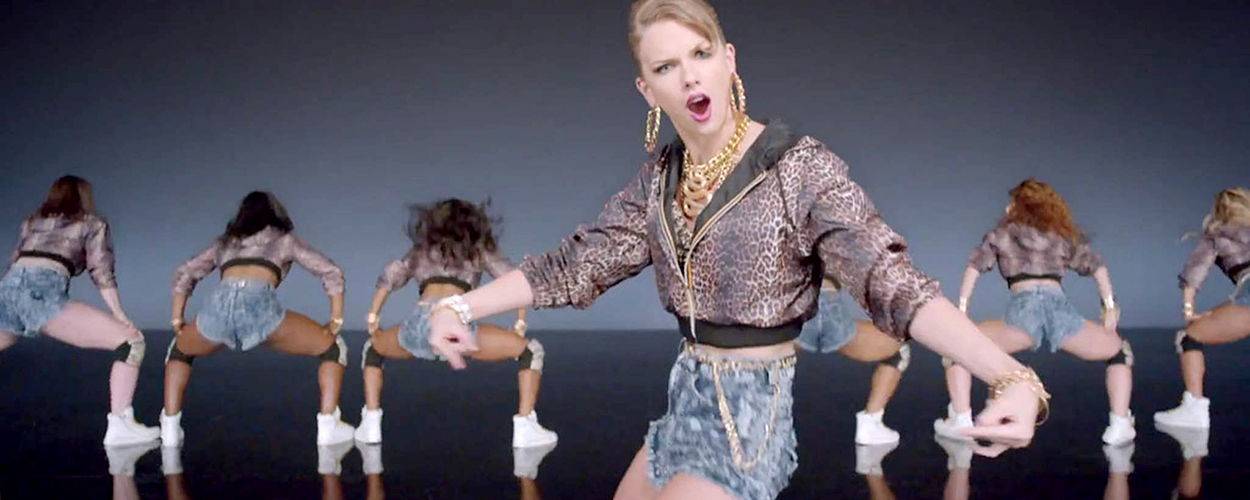This website uses cookies so that we can provide you with the best user experience possible. Cookie information is stored in your browser and performs functions such as recognising you when you return to our website and helping our team to understand which sections of the website you find most interesting and useful.
Artist News Business News Labels & Publishers Legal
Yet another legal filing in the long-running Shake It Off song-theft legal battle
By Chris Cooke | Published on Monday 17 January 2022

The back and forth continues in the ‘Shake It Off’ song-theft legal battle, with the songwriters who accuse Taylor Swift of ripping off their work insisting their litigation should now head to a jury trial.
Legal reps for Sean Hall and Nathan Butler filed new papers with the court on Friday urging the judge to knock back Swift’s most recent and seemingly final attempt to get the case kicked out of court via summary judgement.
Hall and Butler accuse Swift of ripping off their 2001 song ‘Playas Gon Play’ on her 2014 hit. The former had the lyric “the playas gon play/them haters gonna hate”, while ‘Shake It Off’ famously includes the line “the players gonna play, play, play, play, play/and the haters gonna hate, hate, hate, hate, hate”.
The duo first went legal in 2017, but the following year judge Michael Fitzgerald dismissed their lawsuit on the basis that the handful of lyrics the two songs have in common are not protected by copyright in isolation.
However, Hall and Butler successfully over-turned that ruling in the Ninth Circuit appeals court, where judges said that Fitzgerald had been too hasty to conclude that the lines about players playing and haters hating were not protected by copyright.
As a result, the whole matter was sent back to the lower court. Ever since, the Swift side has been trying to get the case dismissed for a second time, mainly on the basis that – well – the handful of lyrics the two songs have in common are not protected by copyright in isolation.
Fitzgerald probably agrees, but this time he has rejected Swift’s motions for dismissal, because the arguments in the case haven’t really changed, so surely the Ninth Circuit would still have an issue with him making a decision on the copyright status of the disputed lyrics without letting those arguments proceed to a jury.
The most recent motion for dismissal was formally knocked back by Fitzgerald last month. But, just before the Christmas break, the Swift side urged the judge to change his mind, arguing that a correct application of the so called ‘extrinsic test’ used in copyright cases of this kind would confirm, well, that the handful of lyrics the two songs have in common are not protected by copyright in isolation.
That last ditch attempt by Team Swift to stop this dispute going before a jury seemed ambitious. Indeed, Hall and Butler argue in their latest filing with the court, “there is no conceivable procedural vehicle that allows defendants to seek the relief sought here – namely, persuade the court that it somehow got it wrong”.
Citing some legal precedents, they go on: “The rules simply do not provide defendants with ‘vehicles for rehashing old arguments and are not intended to give an unhappy litigant one additional chance to sway the judge’. This court echoed the same sentiment when it confirmed that defendants’ ‘unhappiness with the outcome’ is not a valid ground to rehash their previously raised arguments that this court already considered and rejected. Defendants present no cognisable reasons to depart from this sound practice here”.
Despite insisting that now is not the time for either party to be rehashing “previously raised arguments that this court already considered and rejected”, most of the rest of the new Hall and Butler filing then rehashes previously raised arguments as to why it would be inappropriate for the judge to make a ruling on the copyright status of the players playing and haters hating lyrics at this point. You know, just in case Fitzgerald does consider the latest extrinsic test waffling from the Swift side.
Along the way, the Hall and Butler filing states: “In the end, defendants’ motion boils down to the argument that the extrinsic test requires filtering out of unprotected elements, and the court failed to perform this filtering exercise. But just because the court did not expressly invoke the magic ‘filtering out’ mantra does not mean that it somehow forgot to apply it. In fact, the court’s holding is clear that the court considered these arguments and rejected them”.
And so the back and forth continues.





